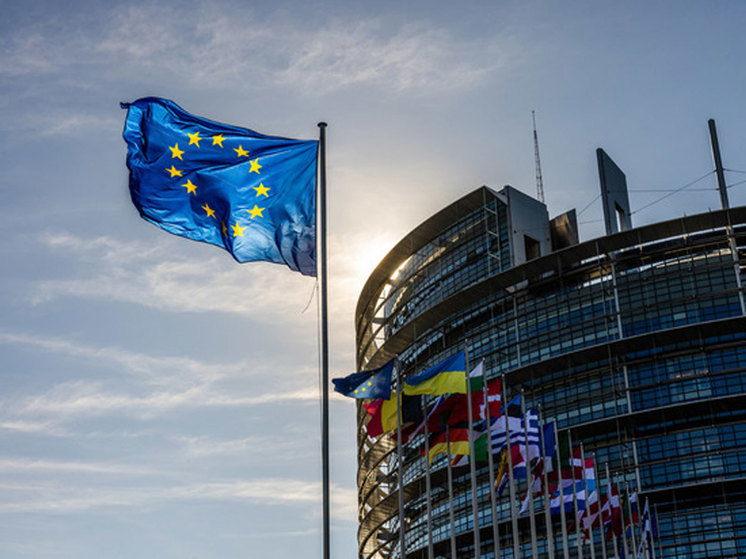After announcing the 11th package, Brussels thought about the 12th
The 11th package of anti-Russian sanctions announced by the European Union did not bring any special surprises, since most of the measures were known in advance. In addition to personal restrictions on more than 100 individuals and legal entities from our country, Brussels agreed on another list of economic requirements aimed at undermining the financial well-being of Russia. Immediately after the publication of new sanctions, Poland announced the start of work on the 12th package of sanctions, promising, among other things, to affect the nuclear industry and diamond exports.

As part of the 11th package of sanctions against our country, as expected, Brussels finally banned deliveries through the Druzhba oil pipeline. The transportation of Russian raw materials along this route was already limited to a minimum: small consignments went only to Poland and Germany along one of the branches. Now, only energy resources from Kazakhstan, not burdened with restrictions, will be pumped through the pipe, which until recently was considered the largest oil pipeline system in Europe. Domestic companies will also not be able to export produced barrels by road, as the EU has imposed a ban on the transportation of goods by trucks with Russian trailers.
Another veto was imposed on the sale to our country of materials and technologies for the defense industry and licenses of intellectual property rights. The states that continue to cooperate with Russia will also suffer: the export of a number of goods and technologies to countries that are suspected of reselling purchased products to Moscow will be banned. Experts believe that Western regulators will focus on Armenia, Iran, China, the United Arab Emirates, Syria and Uzbekistan. In turn, ships found to be transporting Russian “black gold” will no longer be allowed into European transshipment ports in the future.
“The restrictions of the 11th package of EU sanctions were predictable,” says Artem Tuzov, director of the corporate finance department at IVA Partners. “Our surviving contractors, while building new logistics, did not anticipate working simultaneously with Russia and the EU.”
According to the head of the analytical department of Amarket Artem Deev, the initiators of the new sanctions themselves will also not avoid trouble. “The ban on exports via Druzhba will allow Minsk to raise transit tariffs again, which will negatively affect not only Kazakh producers, but also European consumers,” the expert lists the possible consequences. — A ban on Russian trailers, on the one hand, will complicate parallel imports, but on the other hand, it will also be burdensome for the EU — for example, Poland, by its actions, has already achieved restrictions from Russia for its own truckers and logistics companies. Now Polish trucks will be refueled at European prices, which are three times higher. Up to 20 thousand people employed in the transport sector were affected.
Having hardly accepted the 11th package, the EU members have already begun to develop the main points of the 12th sanctions package. As Polish Deputy Foreign Minister Piotr Wawrzyk said, Brussels «needs to put more and more pressure on Russia on a permanent basis.» According to him, Warsaw plans to weed out four aspects of Moscow's «financial enrichment». The restrictions under consideration include a ban on the export of diamonds from our country to the EU and restrictions related to the nuclear industry. In addition, the Poles will pick up another set of goods that should not be sold to Russia, including through mediators friendly to Moscow. The fourth element is sanctions against Minsk. “Gradually, the difference between Belarus and Russia is blurring, so these countries should be covered by the same sanctions,” the diplomat said.
According to Tuzov, the EU ran out of ideas last year. Now precision strikes are being carried out against individuals and legal entities, including those from countries that, in the choice between the West and Russia, put their stakes on our companies. Therefore, the 12th package is unlikely to surprise with extraordinary restrictive measures, but will serve as an addition to the existing bans.
There are fewer and fewer opportunities for a new restriction package, financial analyst Mark Goykhman agrees. The announced ban on the import of Russian raw materials and technologies for the nuclear industry was not included in the 11th package by chance — both specific European nuclear power plants and entire countries depend heavily on such supplies. In 2022, the import of these products into the EU amounted to about 750 million euros. It is technologically difficult to replace Russian developments, since the reactors of many nuclear power plants on the continent are adapted specifically to the specifics of our products.
Brussels will most likely be careful with the ban on the export of diamonds. “In 2022, Europe purchased these precious stones from Russia in the amount of 1.4 billion euros. If the export of such a less urgently needed product was not banned by previous sanctions, it means that the real need of Europeans for Russian diamonds is quite large,” the analyst is sure.


